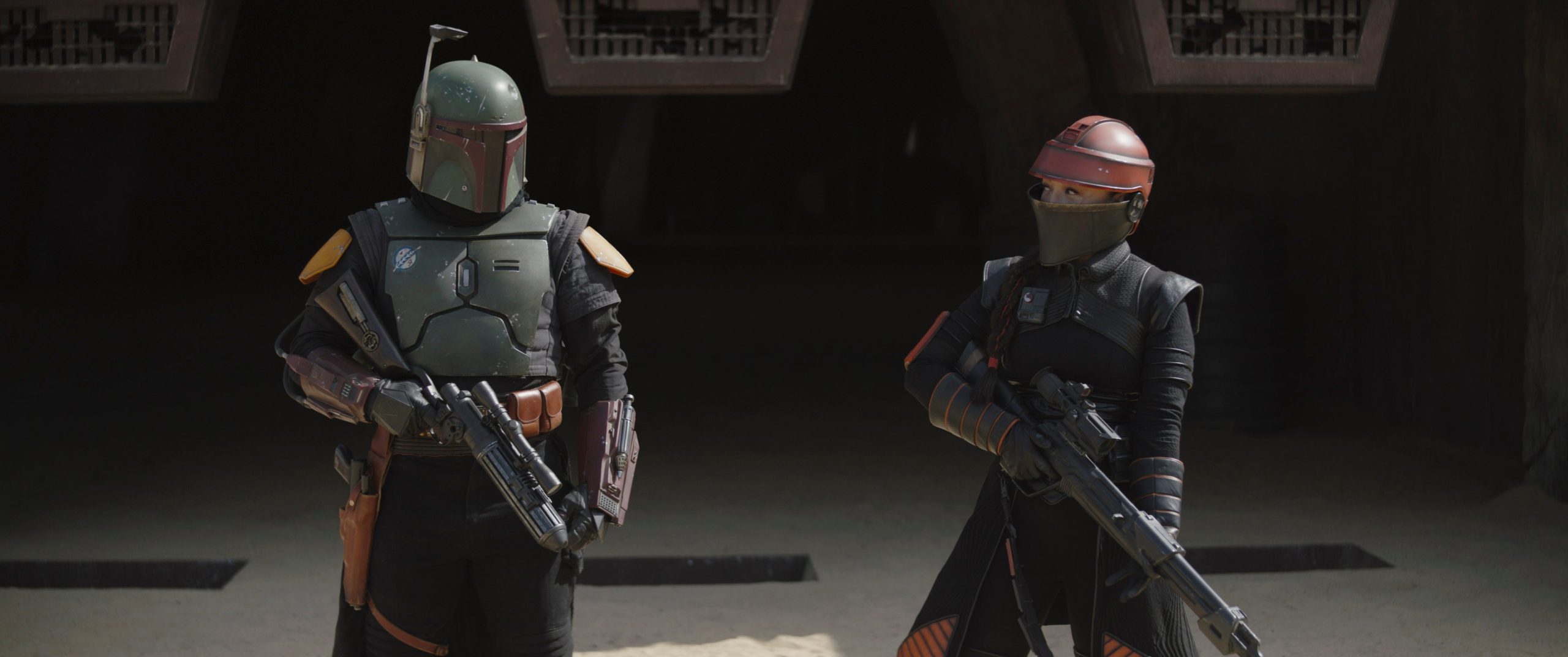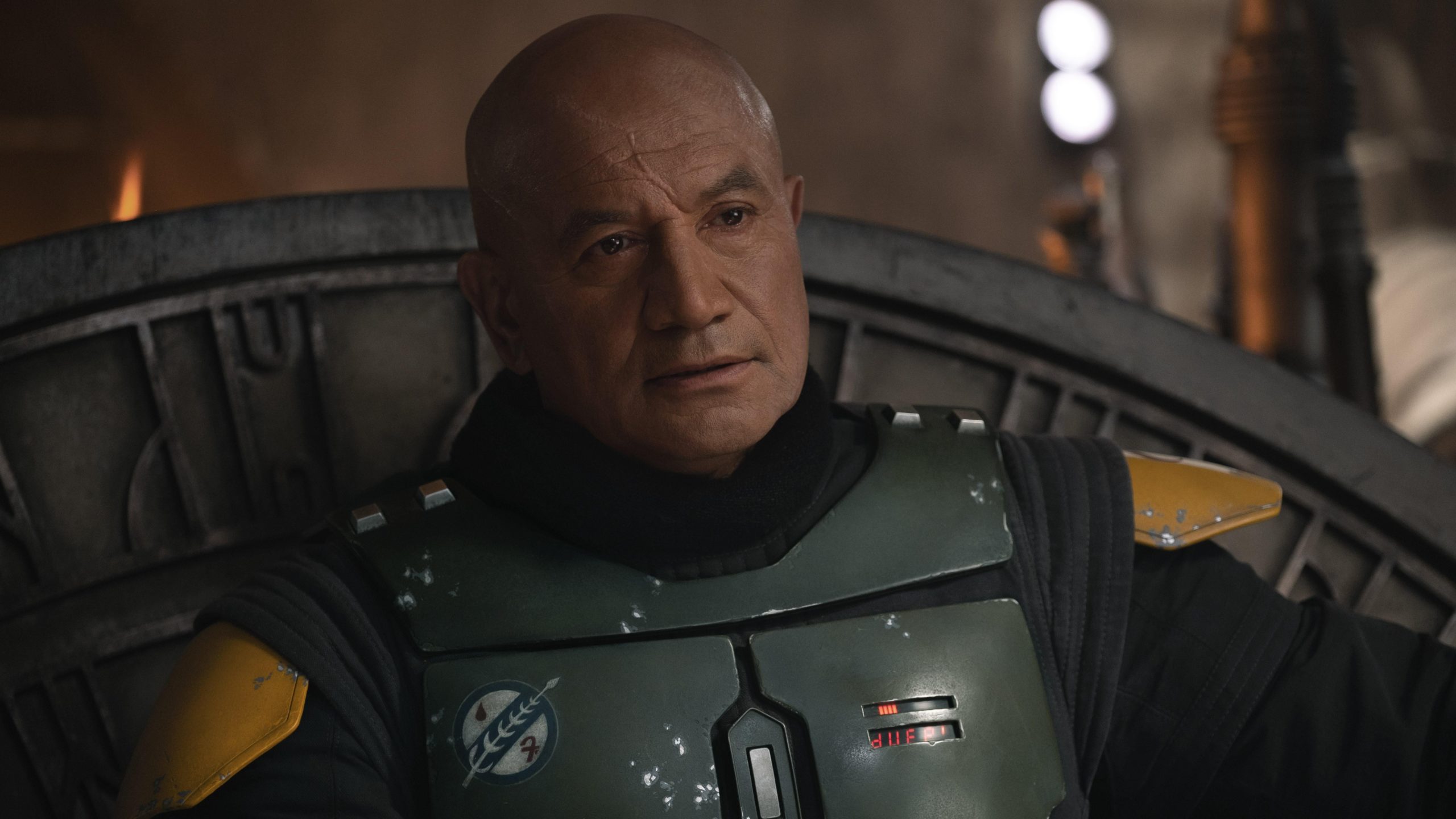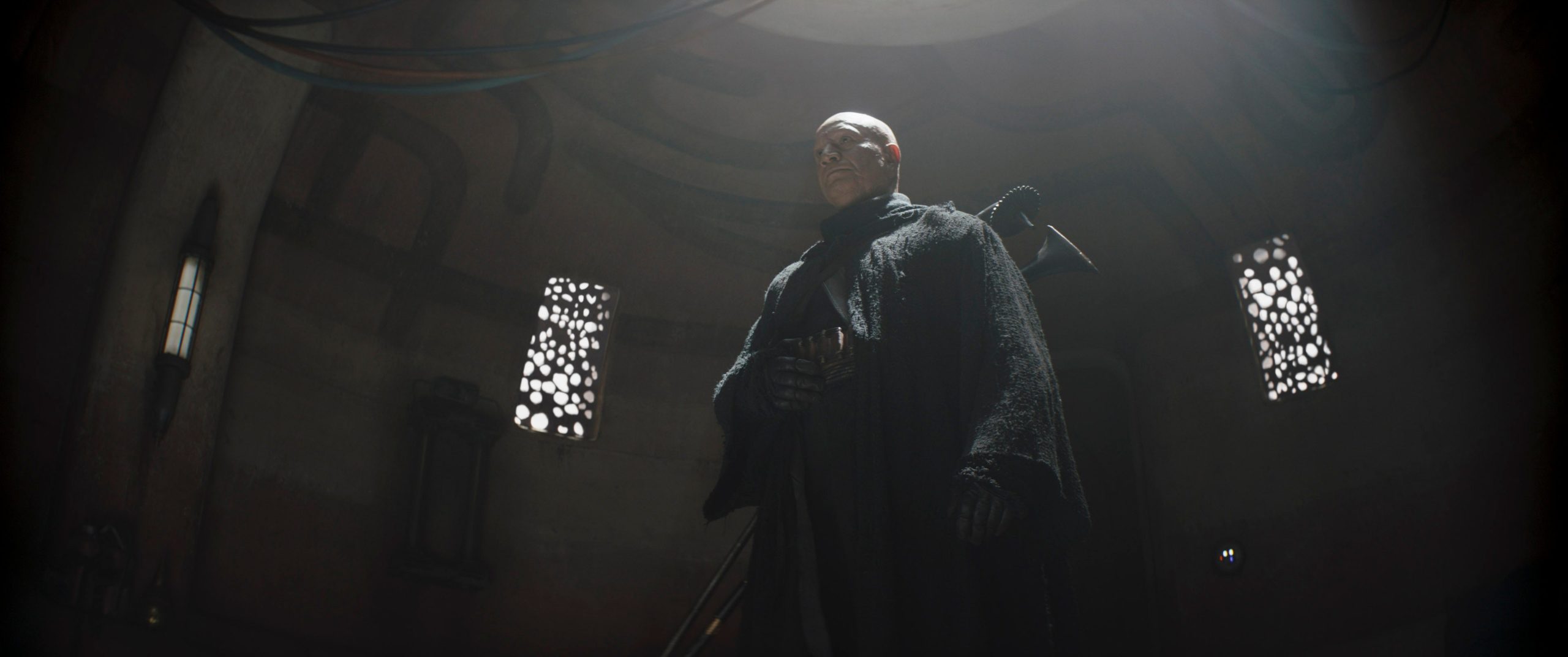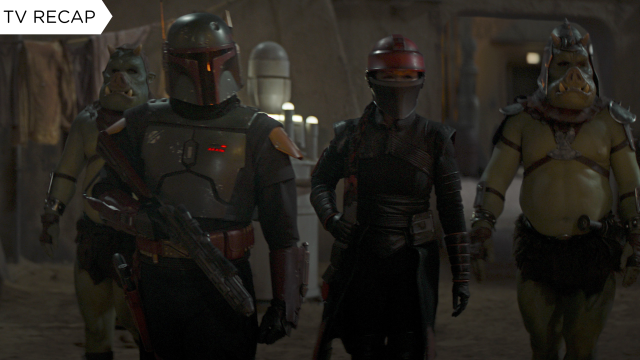If the first few episodes of The Book of Boba Fett were interested in contextualizing the man its titular former bounty hunter became after escaping the Sarlacc, its third, “The Streets of Mos Espa,” is the first to really examine what he’s up against in the present. But like drivers on the titular streets of that Tatooine town, this episode doesn’t care what it crashes into in order to reach its destination.

“The Streets of Mos Espa” marks a turning point in The Book of Boba Fett’s balance between a focus on flashbacks of Boba’s journey and the story of him becoming Mos Espa’s daimyo in the present. Much more time is devoted to that present timeline, as Boba finds himself swept up in the city’s muddled political landscape. New allies appear out of nowhere, and old threats vanish before they can leave much of a mark, all in order to lay the groundwork for the major conflict of the season. But in realigning that balance, the show feels like it’s haphazardly cutting over itself, truncating some of the potential it set up in previous episodes.
The episode opens with something that feels a jokingly ripped out of its sister series The Mandalorian’s playbook: someone comes to Boba to get him something he wants, but in order to get that thing, he’ll have to do a job for them. The thing in question is tribute and control over one of the few water suppliers in Mos Espa, and the job is dealing with a gang of cybernetically enhanced youths (lead by Yellowjackets’ Sophie Thatcher!) that have been stealing his stock.
But this is a new Boba Fett, and we learn he’s much less likely to put a blaster bolt through someone without asking questions then he is to hear out all sides of a conflict. In doing so, Boba learns that the gang’s belligerence is brought out of hardship: With no work in their district and the watermonger gouging prices for his commodity, they had little choice other than to rebel. So Boba sides with the gang, recruiting them as his latest warriors — in a criminal empire that consists of him, Fennec, two Gamorreans, and a torture droid voiced by Matt Berry — and intimidates the monger into lowering his prices.

Things start getting messy from here. Another assassination attempt at the hands of last week’s “yes we’ve read other Star Wars material” character, the Wookiee Black Krrsantan, ends with Boba saved by his new biker gang besties and Krrsantan dumped into the empty Rancor pit. Then the Hutt cousins from last week show up at the doorstep. They’re not here to escalate, it turns out, but to grovel. They’re sorry for siccing a Wookiee on Boba, and they even brought a housewarming Rancor, so maybe something will actually happen the next time Boba and Fennec push someone in the pit. They even got Danny Trejo to train him!
All this sudden retreat after last week’s threats is because the Hutts have discovered that another criminal syndicate have their eye on Jabba’s territory, and are working with forces within Mos Espa to make sure that they get their mitts on it. And so now, another conflict suddenly defused, Boba’s empire grows again: him, Fennec, two Gamorreans, some cyborg teens on the Star Wars equivalent of candy-coloured Vespas, Danny Trejo, Chekov’s riding Rancor, and a torture droid voiced by Matt Berry.
All this feels rather sudden, and “The Streets of Mos Espa” does little to change that feeling when it climaxes with Boba dispatching his newly-acquired teens on a chase of Mayor Mok Shaiz’s majordomo. It all feels classically Star Wars, in that it’s a bit of mess, and there’s few things quite as camp as a Twi’lek in a speeder being chased by more-machine-than-teen bikers. But the mess the chase makes in Mos Espa’s streets is reflected narratively with the deployment of a “twist” that is laid out as such, even if it doesn’t really feel like one. It turns out Mok Shaiz is more involved than they let on last week, and has been working with the Pyke syndicate to muscle in on Jabba’s old territory — and now, make an enemy of Boba in the process.

It’s a perfectly fine status quo for The Book of Boba Fett to pick up going forward, but it also feels like one hastily thrown together at the cost of truncating much of what had been set up across its first two episodes. In hindsight, they now feel like Boba naively being guided around his new empire, less of a major new force at play in Mos Espa and more of a tool for the people who already stepped into the power vacuum Jabba left behind. This would be fine, too — fascinating even, considering Boba’s prior reputation in the Expanded Universe as a master planner steps ahead of his rivals — if it didn’t feel like the audience had likewise been played around with, waiting for the show to reveal its central conflict. Black Krrsantan, the Hutts… they all suddenly feel like their potential has been stripped away as the focus turns to the Pykes.
But there’s another element of potential being stripped away that hits even harder. The minor amount of time the episode spends in flashback is dedicated to a horrifying revelation from Boba’s recent past: Upon returning to his life as a mercenary — this time to claim work on behalf of his new Tuskan compatriots — Boba goes to the Pykes with an offer of a protection arrangement. He quickly discovers that the Pykes have not only already made an arrangement with the Kintan Riders (the same biker gang Boba went after at Tosche station), but in his absence, the Riders struck back at the Tusken settlement and wiped out its population, leaving little but their smouldering tents for Boba to discover.

From the charred husks of Uncle Owen and Aunt Beru to Rey’s own murdered parents, Star Wars is no stranger to leveraging this kind of massacre for a character’s pathos. It’s a blunt and familiar tool to engender a character’s plight to the audience while also freeing to move on from those connections. But even if it’s an obvious move for this franchise, its deployment here stings due to the great lengths The Book of Boba Fett went to in its first two episodes adding nuance to the portrayal of the Tusken peoples as Tatooine’s indigenous populace. To leave all that potential in the air, deeply tying the rebirth of one of Star Wars’ most popular characters to it in the process, only to just immediately cast it aside for a barely-reflected-upon moment of forced tragedy is a forced error for the show.
Whether or not this stumble is be worth it remains to be seen. Yes, “The Streets of Mos Espa” has realigned The Book of Boba Fett’s central conflict. But Star Wars didn’t need to re-tread this familiar trope, at the cost of pointing a spotlight on one of its most fascinating and mistreated cultures.
